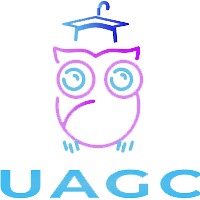
The transition from kindergarten to elementary school is a significant and unavoidable part of a child's development and family life. The term "transition" refers to the crossing of boundaries, moving from one context to another, where appropriate control is important, both for identity formation and to minimize negative emotions. Throughout life, individuals experience various transitions. A transition is a period of change, moving from one situation to another and changing roles. The transition from kindergarten to elementary school is a typical and expected change in a child's life (Pappa, 2017).
What are the 3 stages during the "Transition" phase?
1) Preliminary stage – Stage that increases communication between parent and child, often with questions and role-plays about what the child's new school will be like/imagine, parents buy together with the child the necessary school supplies, creating expectations.
2) Main stage – This marks the beginning of the new school year, here where the child is called to face the new, meets the teacher, here where the separation of the parent and the child takes place.
3) After the transition – The acceptance of the new, where experiences/situations of the first day in the new environment are described
In the context of changes in the educational environment and the transition of children from kindergarten to primary school, certain issues may arise that require special attention. These issues include the assignment of responsibilities between the two contexts, with families often assigning responsibility to the school and teachers, while schools may attribute problems to issues within the family. However, when responsibility is assigned solely based on context, communication between the two sides may break down and the responsibilities may not be fully assumed.
Empowerment practices in the context of Smooth Transition by teachers:
- Organization of joint events between primary and kindergarten teachers
- Discussions with the children about their own expectations from primary school
- Necessary cooperation of institutions and teachers – Children's visits to elementary school
- Individual teaching in the way it is conducted in elementary school
- Joint meetings and constant communication with the children's parents
- Creation of folders that will include the child's work with progress and strengths/weaknesses – Proof of learning progress
Empowerment practices in the context of Smooth Transition by parents:
- Limits on keeping time
- Not using threats, rewards, related to school performance
- We NEVER compare with siblings and/or other children – Competition works negatively
- Reward positive points – Boost self confidence
- MOST IMPORTANT – Collaboration with teachers in planning and implementing these activities (an act of collaboration and not control)




